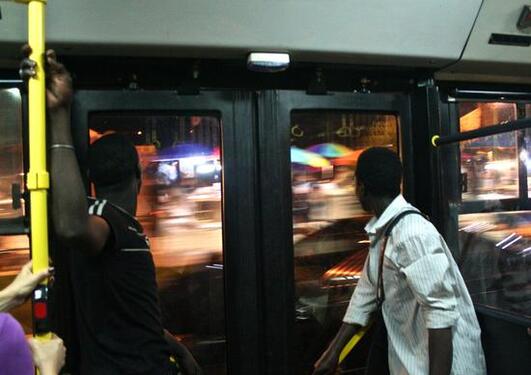Reproducing Europe: Seminar on ethnography and comparison
Dutch anthropologist Anouk de Koning from Radboud University visited SKOK to talk about her ERC-financed project "Reproducing Europe".

Main content
The project is a comparative, ethnographic study focused on parenting as a political domain of governance. Koning and her team will look at how Egyptian migrant parents negotiate their citizenship and parenthood with representatives of the state and voluntary organizations. Koning discussed her project with researchers and PhD candidates at SKOK working on the WAIT project.
Over the course of the last decades, migration from arabic countries to Europe has lead to a heated debate on European identity and culture. The "new" Europe is characterized by the tensions between increasing immigration and the resistance towards it. Many of the conflicts and dillemas surrounding immigration are shared across the continent, but the solutions to these show great variance according to local contexts. Through the project Reproducing Europe Koning wishes to focus on how negotiations on citizenship are expressed through parenting as a political domain of governance. A group of six researchers with a background in anthropology and geography will conduct fieldwork in three european cities: Amsterdam, Paris, and Milano. Each researcher will focus on different aspects of parenting among Egyptian immigrants in their meeting with European professionals in sites such as schools, health care services, and volunteer organizations. The project aims to study changes in european culture and values, and the limits of citizenship and belonging to the european community.
At the seminar, Koning discussed the research problems with employees and PhD candidates at SKOK, who have just started working on the related WAIT project. WAIT is also a comparative project with focus on immigration to Europe, and the participants of the project are well on their way with the planning of their own ethnographic fieldwork, which is to be carried out in 4 European cities. Among other things, the group discussed some of the practical challenges of carrying out urban ethnographic fieldwork, and the challenges of comparing different contexts while giving each researcher the independence to develop their own project.
In Reproducing Europe the common denominator is the focus on parenting among Egyptian immigrants, but the researchers adopt different perspectives: at each city there will be one researcher adopting the perspective of the Egyptian parents, and another researcher adopting the perspective of the professionals. Furthermore, the focus will vary across the locations. In Amsterdam the primary focus will be on how immigrant parents and their children are configured as a problem, and the effects of this configuration on the encounters between immigrants and professionals. The researchers in Amsterdam will look at how the definition of "good parenting" is negotiated between parents and professionals, while the team in Milano will center on the role of volunteer organizations in the absence of a strong state.
